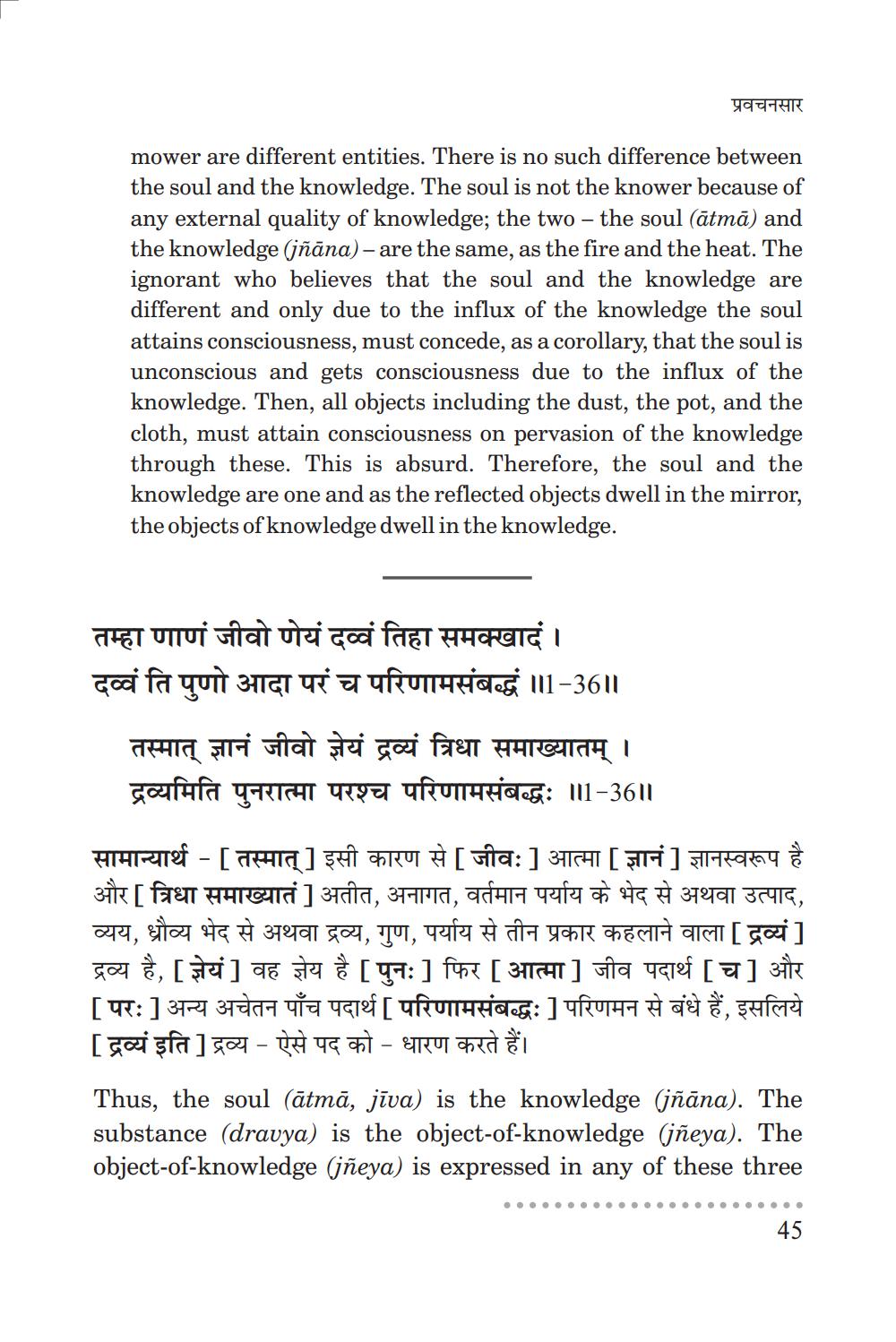________________
mower are different entities. There is no such difference between the soul and the knowledge. The soul is not the knower because of any external quality of knowledge; the two - the soul (ātmā) and the knowledge (jñāna) - are the same, as the fire and the heat. The ignorant who believes that the soul and the knowledge are different and only due to the influx of the knowledge the soul attains consciousness, must concede, as a corollary, that the soul is unconscious and gets consciousness due to the influx of the knowledge. Then, all objects including the dust, the pot, and the cloth, must attain consciousness on pervasion of the knowledge through these. This is absurd. Therefore, the soul and the knowledge are one and as the reflected objects dwell in the mirror, the objects of knowledge dwell in the knowledge.
तम्हा णाणं जीवो णेयं दव्वं तिहा समक्खादं । दव्वं ति पुणो आदा परं च परिणामसंबद्धं ॥1-36॥
तस्मात् ज्ञानं जीवो ज्ञेयं द्रव्यं त्रिधा समाख्यातम् । द्रव्यमिति पुनरात्मा परश्च परिणामसंबद्धः ॥1-36॥
प्रवचनसार
-
सामान्यार्थ – [ तस्मात् ] इसी कारण से [ जीव: ] आत्मा [ ज्ञानं ] ज्ञानस्वरूप है और [ त्रिधा समाख्यातं ] अतीत, अनागत, वर्तमान पर्याय के भेद से अथवा उत्पाद, व्यय, ध्रौव्य भेद से अथवा द्रव्य, गुण, पर्याय से तीन प्रकार कहलाने वाला [ द्रव्यं ] द्रव्य है, [ ज्ञेयं ] वह ज्ञेय है [ पुन: ] फिर [ आत्मा ] जीव पदार्थ [च] और [ परः ] अन्य अचेतन पाँच पदार्थ [ परिणामसंबद्धः ] परिणमन से बंधे हैं, इसलिये [ द्रव्यं इति ] द्रव्य - ऐसे पद को धारण करते हैं।
Thus, the soul (ātmā jīva) is the knowledge (jñāna). The substance (dravya) is the object-of-knowledge (jñeya). The object-of-knowledge (jñeya) is expressed in any of these three
........
.........
45




